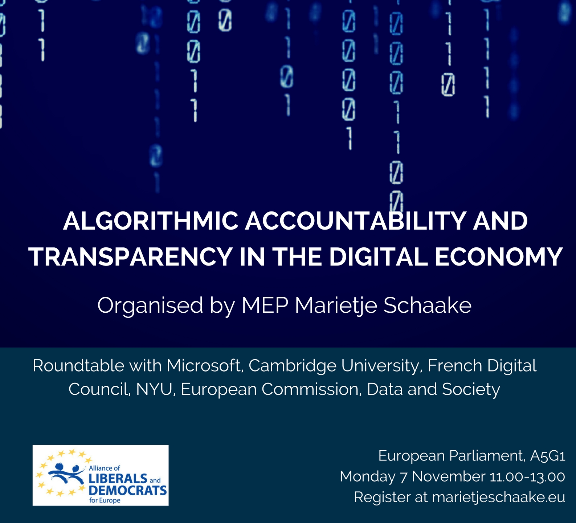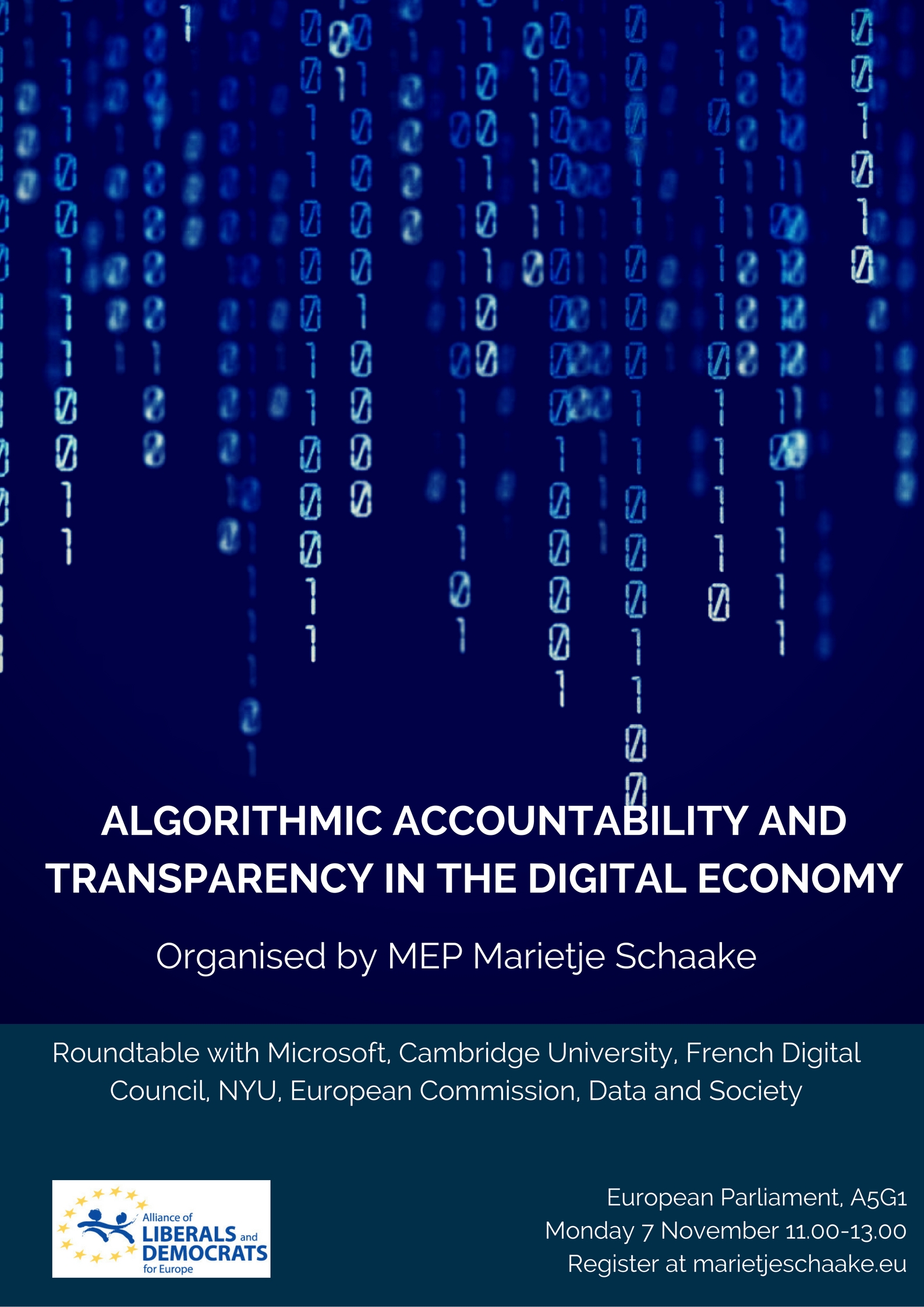On October 25th we presented our Science Technology Options Assessment (STOA) report on “a governance framework for algorithmic accountability and transparency” to the Members of the European Parliament and the European Parliament Research Services “Panel for the Future of Science and Technology.
Tag Archives: EU
European Commission initiatives to explore regulatory requirements for AI

On March 5th and 6th UnBias had the pleasure of participating in a workshop that was organized to signal the launch of the European Commission’s Joint Research Center’s HUMAINT (HUman behaviour and MAchine INTelligence ) project.
The HUMAINT project is a multidisciplinary research project that aims to understand the potential impact of machine intelligence on human behaviour. A particular focus of the project lies on human cognitive capabilities and decision making. The project recognizes that machine intelligence may provide cognitive help to people, but that algorithms can also affect personal decision making and raise privacy issues.
Continue reading European Commission initiatives to explore regulatory requirements for AI
Digital Democracy: Critical Perspectives in the Age if Big Data

Some of us attended a joint conference of the ECREA (European Communications Research and Education Association) Communication and Media Industries, on the 10th-11th November in Stockholm. About 100 people, mainly academics, researchers from NGOs and media consultants from Europe and the US, took part.
Continue reading Digital Democracy: Critical Perspectives in the Age if Big Data
Responsible Governance for Healthy and Sustainable Smart Platforms: Policy directions for the collaborative economy
Smart online platforms will be a vital enabler of future economic growth across the EU and a key component of the EU single digital market. They also promise new ways to pool and mobilise society’s resources with the potential to address various impending social and environmental crises.
However, to reap these benefits, new thinking is required around the regulation and governance of smart online platforms to ensure balanced interests, and to promote fair and safe forms of participation, particularly relating to the role played by algorithms and data in driving economies of scale.
This policy event will provide a forum to address the following questions:
- What are the challenges and opportunities for public policy of Smart Online Platforms?
- How can we leverage platforms for a more equal, just, and knowledgeable society?
- How can platforms play a role in reducing the social divide and retain hard-won rights and protections?
- What are the challenges and opportunities for existing industries from their disruptive business models?
- How should the regulatory environment change and what new regulatory institutions or instruments may be needed?
- How can these technologies support public objectives and help policy makers deliver solutions at greater scale and of greater impact?
This event is being organised by the Smart Society EU FET project which has been exploring technologies and governance models for the next generation of Smart Platforms. The event will include the launch of the Smart Society Social Charter, and high-profile keynote talks.
Preliminary Agenda
9.30 - 10.00 Registration 10.00 - 10.45 Keynote:The landscape of the collaborative economy, Helen Goulden (Nesta) 10.45 - 11.30 Keynote: Responsibility in Collaborative Economies (TBC) 11.30 - 12.00 Coffee 12.00 - 13.00 A Social Charter for Smart Platforms 13.00 - 13.30 Questions and Discussion 13.30 - 14.30 Lunch 14.30 - 15.15 Panel Session 15.15 - 16.00 Closing plenary session
Algorithms Transparency and Accountability in the Digital Economy event at the European Parliament
 On November 7th I attended the Algorithms Transparency and Accountability in the Digital Economy roundtable event that was organized by MEP Marietje Schaake for the purpose of “discussing which options the European Union has to improve the accountability and/or the transparency of the algorithms that underpin many business models and platforms in the digital single market.”
On November 7th I attended the Algorithms Transparency and Accountability in the Digital Economy roundtable event that was organized by MEP Marietje Schaake for the purpose of “discussing which options the European Union has to improve the accountability and/or the transparency of the algorithms that underpin many business models and platforms in the digital single market.”
Algorithmic accountability and transparency in the digital economy


